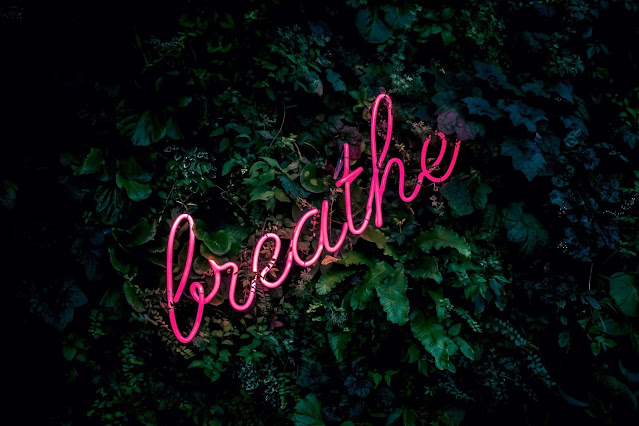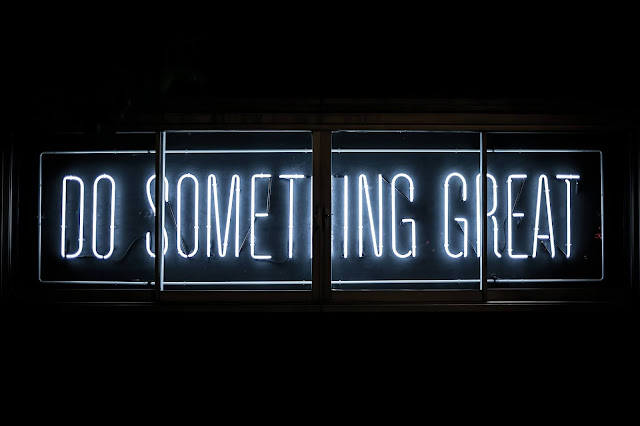Hey Fellas!!!
Well, it's being a long time without you, my friends...
Why still not Hitched???
I know the title looks tempting and may be no need to say read till the end means obviously you don't want to miss anything till the end. So, there may exist n number of reasons which can describe my singular character so far 😉 , and definitely, it's neither inspired by any great scientist or swaggy engineers like APJ Abdul kalam or any other celebrity as such. But is a matter of choice, originates from two big major characteristics that are social anxiety and Being an INFJ(The Chosen ones). Now, you might think the first one is a disorder, well yes that is true. But the second one is definitely not, which we will cover in the next episode as detailed as this one. So, In today's blog, we gonna discuss all A to z related to Social Anxiety and the real meaning of social anxiety(Noor's Definition with some science😉).
So,Phir Chaliye Shuru Karte Hai....Here are the pointers we gonna emphasize upon in this episode.
- What is Social Anxiety and its Origin?
- Types of Social Anxiety.
- Various Aspects of Social Anxiety.
- Symptoms and Root cause of Social anxiety.
- How to Kill Social Anxiety ???
- Medication for Social anxiety.
- Social anxiety test.
So fellas,
What is Social Anxiety Disorder?

Social anxiety disorder (SAD) is a debilitating condition characterized by a marked and persistent fear of being humiliated or scrutinized by others (World Health Organization). Individuals fear a range of social interactions, such as conversations with strangers, joining in groups, or speaking on the telephone. Most things that involve being observed by others are difficult. These include walking into a room when other people are already seated, eating or drinking in public, and performing in front of an audience. Sufferers fear that they will say or do something that they believe will be humiliating or embarrassing. Common concerns include the fear of sweating, shaking, blushing, stumbling over words, looking anxious, or appearing boring, stupid, or incompetent
Social anxiety disorder is the third most common mental health disorder after depression and substance abuse, with lifetime prevalence rates of around 12%. It is common in young people.
Origin of Social Anxiety...
Social anxiety disorder is associated with profound negative consequences and high levels of impairment even when compared to other psychiatric disorders. Social anxiety disorder affects all areas of life. For adolescents, academic attainment is curtailed, with individuals at risk of leaving school early and obtaining poorer qualifications. Those with a clinical or subclinical social anxiety disorder had a lower grade point average compared to those with no diagnosis. Social relationships are inevitably particularly challenging for socially anxious adolescents. They report having fewer friends, and the peer and romantic relationships they do have are of poorer quality. They are more likely to be victims of bullying.
Social anxiety makes day-to-day life difficult, for example, shopping and using the telephone can be a challenge. Research with adults demonstrates that the impairments associated with social anxiety disorder persist into adulthood. Employment is affected: although the majority of adults with social anxiety disorder are employed, they take more days off and report lower productivity due to their symptoms. In terms of close relationships, adults with social anxiety disorder are less likely to marry, more likely to divorce, and less likely to have children. A study amongst adults seeking treatment for social anxiety disorder found that the functional impairment was not due to the presence of comorbid mood or anxiety disorders.
Types of Social Anxiety...
Two make it super clear social anxiety on broader terms can be classified into three types:
- Generalized Social Anxiety Disorder:
People affected by generalized social anxiety experience fear in virtually all or most social situations. This type of social anxiety usually starts in early childhood, before the age of 10, and is characterized by behavioral inhibition (BI).
BI (behavioral inhibition) refers to a reserved, shy and anxious temperament, especially when confronted with new situations, experiences, and people.
Generalized social anxiety is associated with greater comorbidity than the other subtypes (Kessler, Stein, & Berglund, 1998). This means that it often comes along with additional psychological problems, such as depression or generalized anxiety disorder.
People with this type of social anxiety usually display greater difficulties living a “normal” life and the genetic component is believed to have a greater influence than it has on the other subtypes.
- Nongeneralized Social Anxiety Disorder
People with nongeneralized social anxiety also fear most social situations, but they exhibit at least one area of normal social functioning without anxiety (Heimberg, Holt, Schneier, & Spitzer, 1993).
While this may facilitate things a little compared to those suffering from generalized SAD, as professional or personal life can still be sources of well-being and self-esteem, many affected people experience significant functional impairment and hardship.
- Circumscribed / Specific Social Anxiety Disorder
Circumscribed social anxiety (also: specific social anxiety) is experienced by people who fear one or very few specific social scenarios only.
Among people with SAD, public speaking anxiety is the most common phenomenon. Individuals who are only concerned about scenarios of this type would qualify for this type of SAD.
Compared to generalized SAD, the genetic component associated with specific social anxiety is not as eminent. It also tends to start a little later, usually throughout puberty.
It is also more likely that people with this type of social anxiety report a specific traumatic social experience that marked the start of their social phobia. People with circumscribed SAD may even seem socially confident and their friends and acquaintances often describe them as outgoing and sociable.
Different Aspects of Social Anxiety...
- Cognitive aspects:
- Behavioral aspects:
- Physiological aspects
- Social aspects
- Comorbidity
Now moving on to the most important part...
Symptoms of Social Anxiety Disorder...
- Fear of situations in which you may be judged negatively
- Worry about embarrassing or humiliating yourself
- Intense fear of interacting or talking with strangers
- Fear that others will notice that you look anxious
- Fear of physical symptoms that may cause you embarrassment, such as blushing, sweating, trembling or having a shaky voice
- Avoidance of doing things or speaking to people out of fear of embarrassment
- Avoidance of situations where you might be the center of attention
- Anxiety in an anticipation of a feared activity or event
- Intense fear or anxiety during social situations
- Analysis of your performance and identification of flaws in your interactions after a social situation
- The expectation of the worst possible consequences from a negative experience during a social situation
- Physical signs and symptoms can sometimes accompany social anxiety disorder and may include:
- Blushing
- Fast heartbeat
- Trembling
- Sweating
- Upset stomach or nausea
- Trouble catching your breath
- Dizziness or lightheadedness
- Feeling that your mind has gone blank
- Muscle tension
Common, everyday experiences may be hard to endure when you have a social anxiety disorder, including:
- Interacting with unfamiliar people or strangers
- Attending parties or social gatherings
- Going to work or school
- Starting conversations
- Making eye contact
- Dating
- Entering a room in which people are already seated
- Returning items to a store
- Eating in front of others
- Using a public restroom
Social anxiety disorder symptoms can change over time. They may flare up if you're facing a lot of changes, stress, or demands in your life. Although avoiding situations that produce anxiety may make you feel better in the short term, your anxiety is likely to continue over the long term if you don't get treatment.
How to kill Social Anxiety??
Well, it may sound heroic just like killing some supervillain or something, but my friend this super villain got no face it is not constituted of any substance it just can be dealt with. And you alone cant change your faith you require a super force called hope for the best and support for being courageous and brave. It ain't that easy for time being we can discuss how can social anxiety be treated.
Social anxiety can be a burdening mental health condition to live with, particularly as it can affect you or your loved one physically, emotionally, and socially. Living with social anxiety condition can mean that you are isolated from loved ones, family, and friends as you deal with unrealistic worries and fears. Thankfully, there can be hope and healing from this disorder by seeking the appropriate help and care you or your loved one may need. There are several techniques and strategies that can be integrated into social anxiety disorder treatment plan, which can help an individual with social anxiety overcome their fears and apprehensions. A social anxiety treatment center can provide the tools and resources you need to recover and heal from any situation you may have endured.
First, talk to your doctor or health care professional about your symptoms. Your doctor should do an exam and ask you about your health history to make sure that an unrelated physical problem is not causing your symptoms. Your doctor may refer you to a mental health specialist, such as a psychiatrist, psychologist, clinical social worker, or counselor. The first step to effective treatment is to have a diagnosis made, usually by a mental health specialist.
Social anxiety disorder is generally treated with psychotherapy (sometimes called “talk” therapy), medication, or both. Speak with your doctor or health care provider about the best treatment for you. If your health care provider cannot provide a referral, visit the NIMH Help for Mental Illnesses web page for resources you may find helpful.
But let me here share with you some of the solutions I have tried so far...
- Psychotherapy Way
A type of psychotherapy called cognitive-behavioral therapy (CBT) is especially useful for treating social anxiety disorder. CBT teaches you different ways of thinking, behaving, and reacting to situations that help you feel less anxious and fearful. It can also help you learn and practice social skills. CBT delivered in a group format can be especially helpful. For more information on psychotherapy, please visit.
- Medication Way
There are three types of medications used to help treat social anxiety disorder:
- Anti-anxiety medications
- Antidepressants
- Beta-blockers
Anti-anxiety medications are powerful and begin working right away to reduce anxious feelings; however, these medications are usually not taken for long periods of time. People can build up a tolerance if they are taken over a long period of time and may need higher and higher doses to get the same effect. Some people may even become dependent on them. To avoid these problems, doctors usually prescribe anti-anxiety medications for short periods, a practice that is especially helpful for older adults.
Antidepressants are mainly used to treat depression but are also helpful for the symptoms of social anxiety disorder. In contrast to anti-anxiety medications, they may take several weeks to start working. Antidepressants may also cause side effects, such as headaches, nausea, or difficulty sleeping. These side effects are usually not severe for most people, especially if the dose starts off low and is increased slowly over time. Talk to your doctor about any side effects that you have.
Beta-blockers are medicines that can help block some of the physical symptoms of anxiety on the body, such as an increased heart rate, sweating, or tremors. Beta-blockers are commonly the medications of choice for the “performance anxiety” type of social anxiety.
Apart from this, see your doctor or a mental health professional if you fear and avoid normal social situations because they cause embarrassment, worry, or panic.
Prevention...
There's no way to predict what will cause someone to develop an anxiety disorder, but you can take steps to reduce the impact of symptoms if you're anxious:
- Get help early. Anxiety, like many other mental health conditions, can be harder to treat if you wait.
- Keep a journal. Keeping track of your personal life can help you and your mental health professional identify what's causing you stress and what seems to help you feel better.
- Set priorities in your life. You can reduce anxiety by carefully managing your time and energy. Make sure that you spend time doing things you enjoy.
- Avoid unhealthy substance use. Alcohol and drug use and even caffeine or nicotine use can cause or worsen anxiety. If you're addicted to any of these substances, quitting can make you anxious. If you can't quit on your own, see your health care provider or find a treatment program or support group to help you.










Stay tuned 2nd part coming soon!!
ReplyDelete